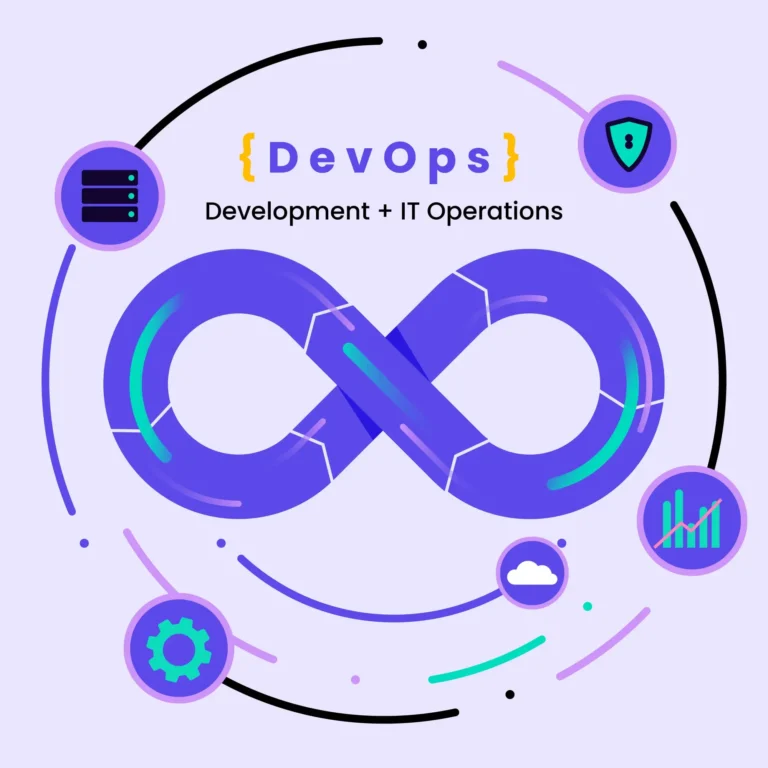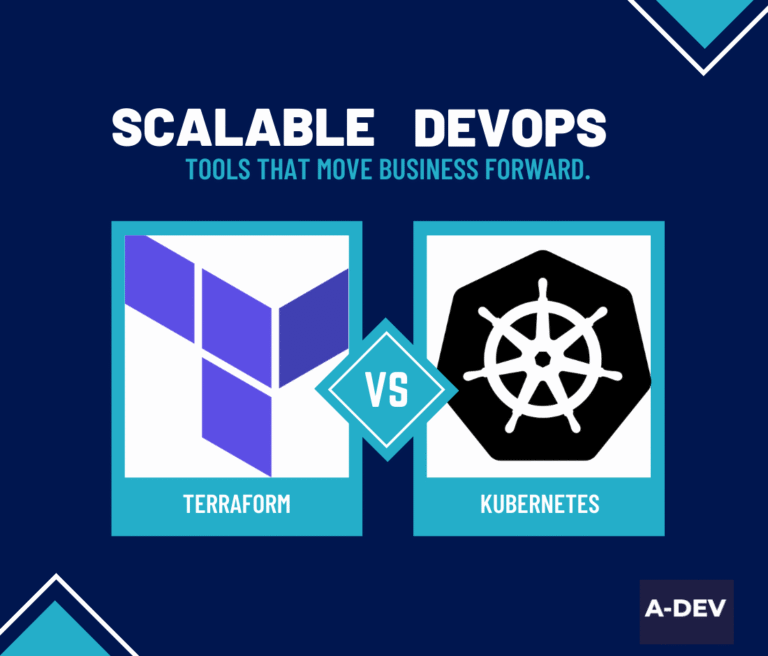The year 2024 marks a pivotal moment in software development, with DevOps at the heart of success. This guide delves into the practical realities of building and nurturing high-performing DevOps teams in this dynamic environment. By exploring essential DevOps roles, in-demand skills, and innovative hiring and training approaches, we empower you to harness the power of DevOps and usher in a new era of efficiency and agility for your software development initiatives.
What is the role in DevOps? Core Principles and Responsibilities
In today’s competitive software landscape, organizations face mounting pressure to deliver high-quality products faster and more reliably. DevOps emerges as a transformative approach, bridging the traditional divides between development and operations teams to optimize workflows, enhance release velocity, and ensure consistent delivery. However, effectively implementing DevOps processes requires a comprehensive understanding of its core principles and the diverse DevOps roles that contribute to its success.
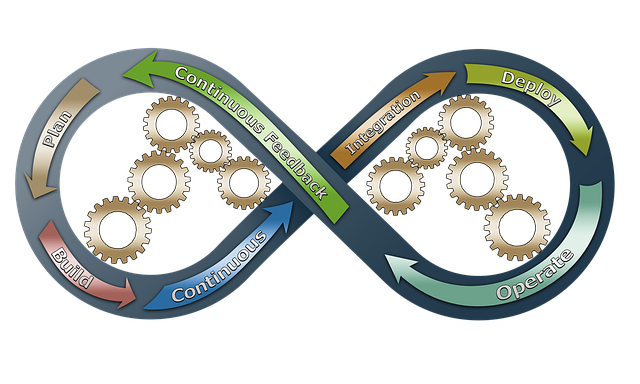
This guide delves into the fundamental pillars of DevOps, demystifying its key methodologies and their practical applications within the software development lifecycle. We then move on to examine the essential roles within the DevOps ecosystem, outlining their responsibilities, required skill sets, and individual contributions to achieving optimal results.
By equipping you with this knowledge, we aim to empower you to build and nurture effective DevOps teams within your organization. This guide serves as a valuable resource for both established teams seeking to refine their practices and newcomers embarking on their first foray into the DevOps world.
Core Principles of DevOps
- Continuous Integration and Delivery (CI/CD): This practice automates the integration of code changes, testing, and deployment, enabling frequent and reliable software releases.
- Infrastructure as Code (IaC): By treating infrastructure as code, DevOps ensures scalability, consistency, and maintainability through automation and version control.
- Automation and Agile Development: Repetitive tasks are automated, freeing up human resources for creative problem-solving and iterative development approaches.
- Collaboration and Communication: DevOps fosters a culture of open communication and shared ownership among development, operations, and other relevant teams. Version control systems provide centralized visibility and coordination.
Key Roles within the DevOps Ecosystem
- Operations: Responsible for managing infrastructure, overseeing deployments, and ensuring system stability and performance.
- Development: Focuses on software development activities, including coding, testing, and ensuring code quality and functionality.
- Governance: Upholds compliance, security standards, and project management best practices.
In the following sections, we will explore each of these categories in detail, outlining the specific DevOps roles within each, their essential skills, and the valuable contributions they make to the overall success of DevOps initiatives. By understanding these roles and their responsibilities, you can build a winning DevOps team that empowers your organization to achieve its software development goals.
For an extensive exploration of these foundational principles within DevOps processes, encompassing their advantages and significance, we encourage delving into our comprehensive guide on DevOps Fundamentals.
How Many Roles Are There in DevOps?
DevOps encompasses a diverse spectrum of roles essential for its success. Broadly categorized, these roles fall into three primary categories:
- Operations: Roles within Operations primarily concentrate on managing infrastructure, overseeing deployment processes, and ensuring system stability and reliability. These professionals play a pivotal role in maintaining the operational backbone of DevOps practices, providing support and stability for software developers throughout the development lifecycle.
- Development: Roles within the Development category focus on software development activities such as coding, testing, and optimizing codebase functionality and quality. These individuals collaborate closely with operations teams, including Release Managers, to ensure the seamless integration of developed software into the operational environment. This collaboration guarantees effective deployment and maintains system stability and reliability, emphasizing the critical synergy between Development and Operations in the DevOps framework.
- Governance: Governance-related roles in DevOps are responsible for overseeing compliance, security measures, and overall project management. They ensure that projects adhere to industry standards, mitigate risks, and maintain a secure operational environment.
In the subsequent sections, we’ll explore the specific DevOps roles within each category, detailing their responsibilities, requisite skill sets, and the valuable contributions they make to the holistic DevOps ecosystem.
Key DevOps Roles and Responsibilities for Team Success
In exploring the multifaceted realm of DevOps, it’s crucial to grasp the distinctive DevOps roles and responsibilities that synergize to create a robust and efficient DevOps team structure. Organizations that embrace DevOps often craft teams that incorporate a mix of diverse skills and roles. Below are key DevOps roles commonly found in high-performing DevOps teams, each contributing uniquely to the DevOps philosophy.
What are the DevOps jobs?
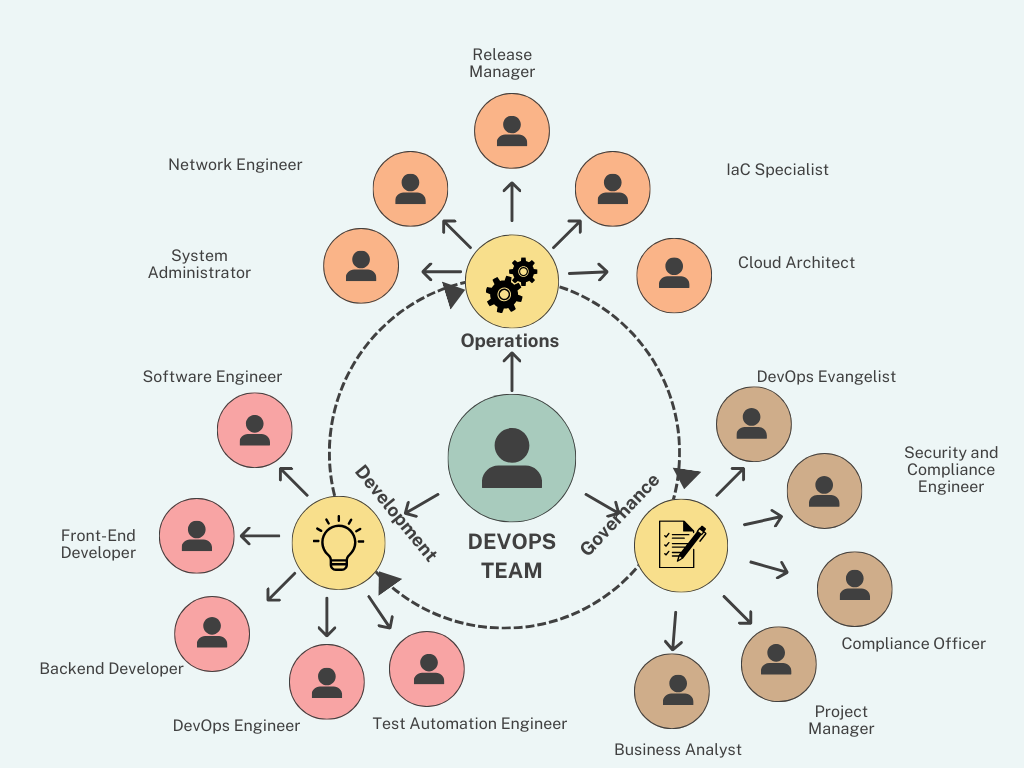
DevOps Evangelist
Leadership plays a pivotal role in a successful DevOps transformation. A DevOps evangelist champions the DevOps philosophy within an organization. They secure buy-in from stakeholders, break down organizational barriers, and spearhead the formation of DevOps teams.
The role of DevOps evangelist requires technical expertise, strong leadership, and an acute understanding of business processes. A successful DevOps evangelist fosters a culture of psychological safety, encouraging a safe environment to learn from failures and drive organizational change.
Automation Architect/DevOps Engineer
At the heart of DevOps lies automation, overseen by an Automation Architect or DevOps Engineer. This role focuses on optimizing development cycles by identifying opportunities for automation. They are instrumental in deploying and maintaining project infrastructure, establishing Continuous Integration & Deployment (CI/CD) pipelines, and adopting best automation practices and tools.
Collaborating extensively with the team, they drive the migration to cloud platforms and monitor technical operations, ensuring optimal performance and providing crucial IT support.
Software Engineer/Tester
In the DevOps landscape, roles often transcend traditional boundaries. Software Engineers take on additional responsibilities traditionally held by Quality Assurance (QA) engineers. Engaged throughout the product lifecycle, they not only create new features but also test, deploy, and monitor them in production.
Senior engineers in this role often assume leadership as team leads, assigning tasks, reviewing code, and implementing complex features within the development team.
Quality/Experience Assurance Specialist (QA/XA)
The evolving nature of DevOps redefines the responsibilities of quality assurance professionals. QA/XA specialists set quality standards, design tests, and, in tandem with the development pace, leverage automated testing to ensure high product quality. Beyond ensuring quality, they also focus on guaranteeing an excellent User Experience (UX), aligning with the goal of customer delight.
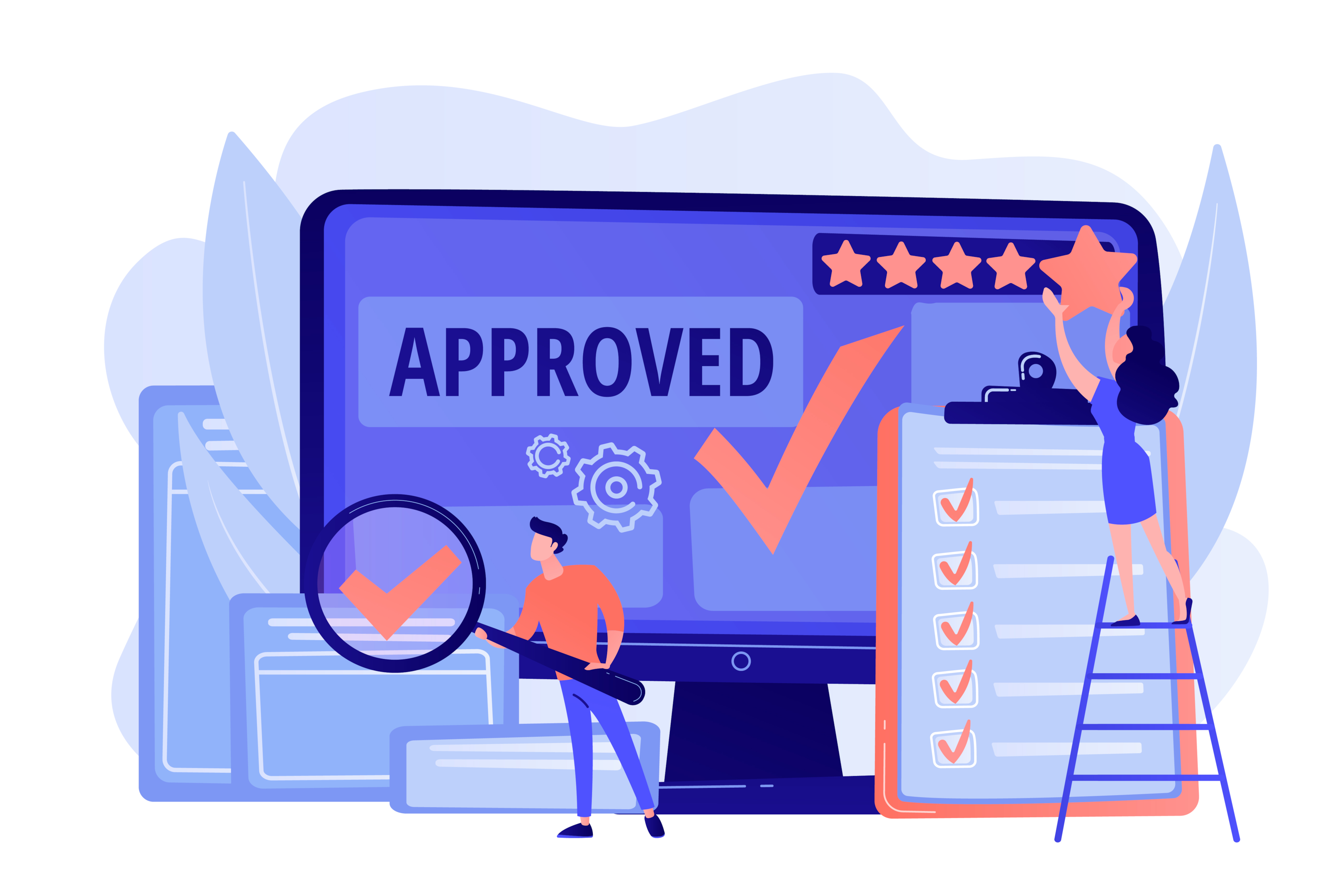
Security and Compliance Engineer
Security and Compliance Engineers stand as the guardians of digital sanctity within the dynamic landscape of DevOps. Tasked with fortifying the infrastructure and ensuring compliance with regulatory standards, they function as the custodians of robustness and integrity.
This pivotal role demands a meticulous blend of technical acumen and regulatory comprehension. A security engineer is the architect of fortified digital bastions, navigating the complexities of security protocols and weaving compliance measures seamlessly into the DevOps fabric. Their vigilance safeguards against potential vulnerabilities, upholding the sanctity of data and ensuring adherence to stringent industry standards.
These are just some of the key roles that contribute to a successful DevOps team. By understanding the DevOps roles and responsibilities and fostering a collaborative environment where these roles synergize effectively, organizations can unlock the full potential of DevOps and drive their software development efforts to new heights.
DevOps Team: Roles and Responsibilities in 2024
The year 2024 marks a pivotal turning point for DevOps specialists. As transformative trends reshape traditional methodologies, DevOps stands at the forefront of digital transformation, propelled by advancements that redefine team structures and operational strategies. This evolution demands a shift in focus, equipping DevOps engineers with new skills and expanding their roles to navigate the increasingly complex technological landscape.

Rise of Cloud-Native Technologies
Cloud-native technologies, particularly containerization and microservices, are experiencing explosive adoption in 2024. This necessitates a recalibration of skillsets within DevOps teams. Expertise in managing distributed systems and leveraging containerization is now paramount for enhanced scalability and flexibility in software development and deployment. DevOps engineers must embrace tools and methodologies specifically designed for the cloud-native environment.
Integration of AI/ML
Another defining trend is the seamless integration of artificial intelligence (AI) and machine learning (ML) tools within DevOps teams. Automation takes center stage, empowering engineers with real-time insights and predictive analytics. This not only streamlines workflows but also elevates decision-making capabilities. AI/ML handles routine operations with incredible efficiency, freeing human expertise for more strategic tasks requiring ingenuity and critical thinking.
Evolving DevOps Roles
These trends lead to a significant evolution in the roles and responsibilities of DevOps engineers in 2024. The once clear-cut boundaries between development and operations are further blurred, requiring a more versatile skillset and a collaborative mindset. DevOps engineers must become:
- Cloud Architects: Building and managing secure, scalable cloud infrastructure becomes an essential competency.
- Data Driven Decision Makers: Understanding and utilizing AI/ML insights for efficient resource allocation, anomaly detection, and predictive maintenance.
- Automation Champions: Identifying and implementing automation opportunities to free up time for value-added activities.
- Effective Collaborators: Working seamlessly with diverse teams, including developers, security specialists, and business stakeholders, to ensure cohesive software delivery.
The year 2024 marks a crucial turning point for a DevOps team. By embracing these transformative trends and developing the necessary skills, DevOps engineers can unlock the full potential of automation, cloud-native technologies, and AI/ML, propelling their organizations to new heights of efficiency and competitive advantage.
Adaptability and Growth: Building Effective DevOps Teams
In today’s rapidly evolving landscape, constructing effective DevOps teams necessitates a strategic emphasis on adaptability and growth, integrating pivotal strategies that foster innovation and collaboration. For a comprehensive understanding of the foundational principles driving this pivotal transformation in DevOps practices, there’s an insightful article titled “Unveiling DevOps Adoption: Transforming Software Development Organizations for Success.” This resource intricately articulates the core ideologies propelling DevOps practices, shedding light on its principles within software development organizations, nurturing innovation and success amidst this dynamic landscape.

Strategies for Adaptation
1. Cross-functional Collaboration: Breaking Silos for Collaboration
In the realm of DevOps, cross-functional collaboration is paramount. Traditionally separated teams—like developers, operations, QA, and security—are now integrated into a unified DevOps culture. Collaboration among these diverse teams facilitates shared responsibilities, faster issue resolution, and a holistic approach to problem-solving. This collaborative environment encourages a collective sense of ownership over the entire software delivery lifecycle, leading to faster innovation and improved quality.
2. Continuous Skills Development: Cultivating a Culture of Ongoing Learning for DevOps Engineers
DevOps operates in a rapidly evolving technological landscape. Continuous learning and upskilling are pivotal to keeping teams equipped with the latest tools, methodologies, and best practices. Organizations that prioritize learning opportunities for their DevOps team foster an environment that encourages exploration, experimentation, and knowledge-sharing. This culture of continual learning not only ensures that your DevOps team remains proficient in current technologies but also enables them to adapt swiftly to emerging trends and industry advancements.
3. Agile Methodologies: Embracing Agility for Swift Adaptation
Agile methodologies have become the cornerstone of DevOps practices. Embracing agility means being responsive to change, promoting iterative development, and delivering value promptly. Agile practices like Scrum or Kanban empower teams to break down complex tasks into manageable iterations, enabling faster delivery cycles and frequent feedback loops. This adaptability to change ensures that teams can respond swiftly to evolving requirements, market shifts, and customer needs, fostering a culture of flexibility and responsiveness.
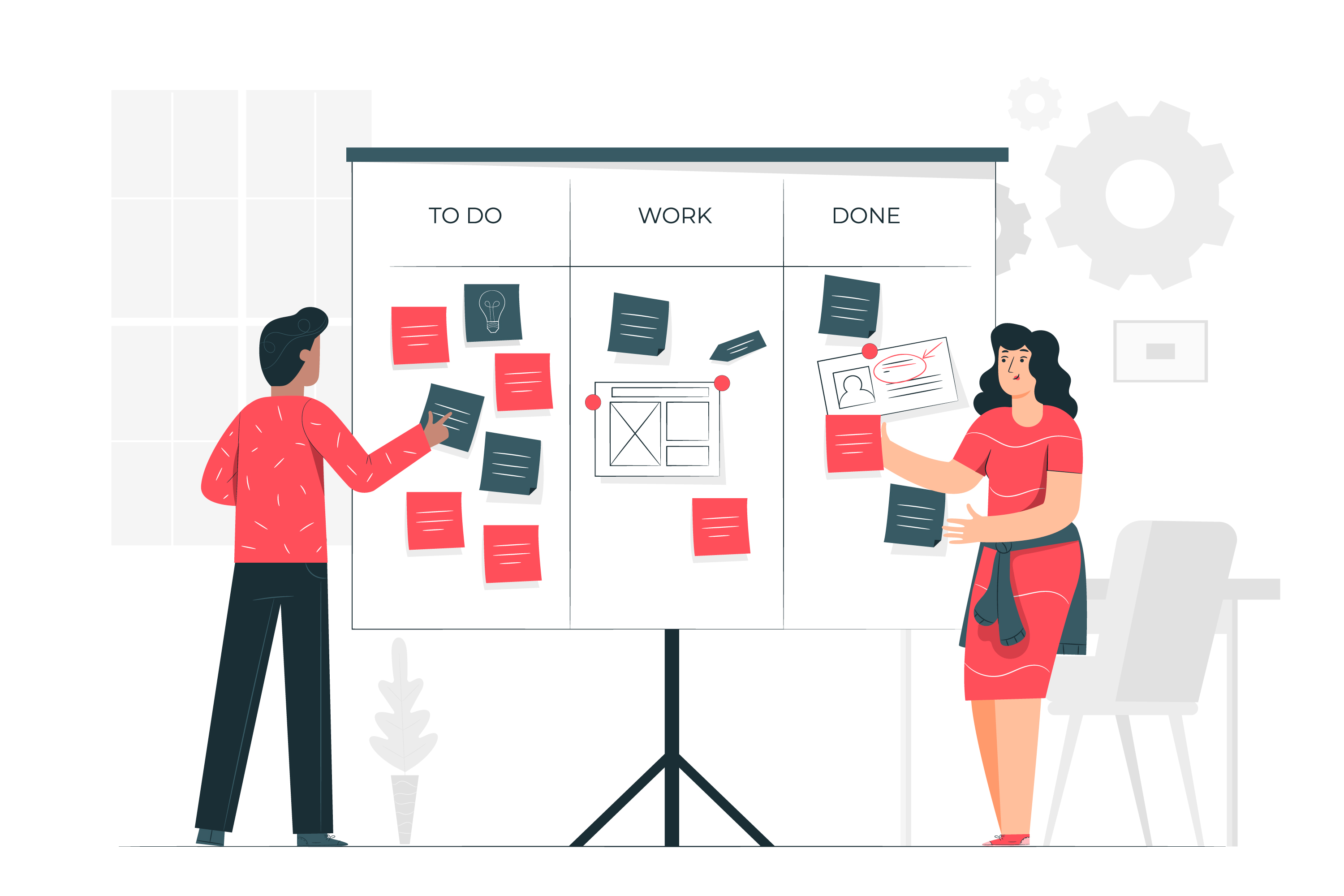
Implementing These Strategies in DevOps Teams
- Encouraging Collaborative Tools: Utilize collaboration tools and platforms that enable seamless communication and sharing of knowledge across development and operations teams, fostering a cohesive working environment.
- Investing in Learning Resources: Provide access to training, workshops, certifications, and mentoring programs to empower team members to upskill and stay updated with the latest industry trends.
- Iterative Workflow Practices: Implement agile methodologies in day-to-day operations, encouraging iterative development, regular feedback, and continuous improvement.
- Creating a Learning Culture: Encourage a culture that values learning from failures, promotes knowledge-sharing sessions, and rewards innovation and experimentation.
- Feedback and Reflection: Encourage open communication and regular feedback loops within teams to reflect on processes, identify areas of improvement, and adapt swiftly to changing circumstances.
By integrating these strategies into the fabric of their DevOps team, organizations can create an environment that adapts quickly, fosters innovation, and drives continuous growth and success. This will empower them to thrive in the ever-changing software landscape and deliver value to their customers faster than ever before.
What are the different job titles in DevOps?
In the intricate web of DevOps roles, beyond the fundamental positions like a DevOps engineer and release managers, a new wave of specialized roles has surfaced to meet specific needs and amplify the capabilities of the team. Let’s explore two of these roles that have gained prominence.
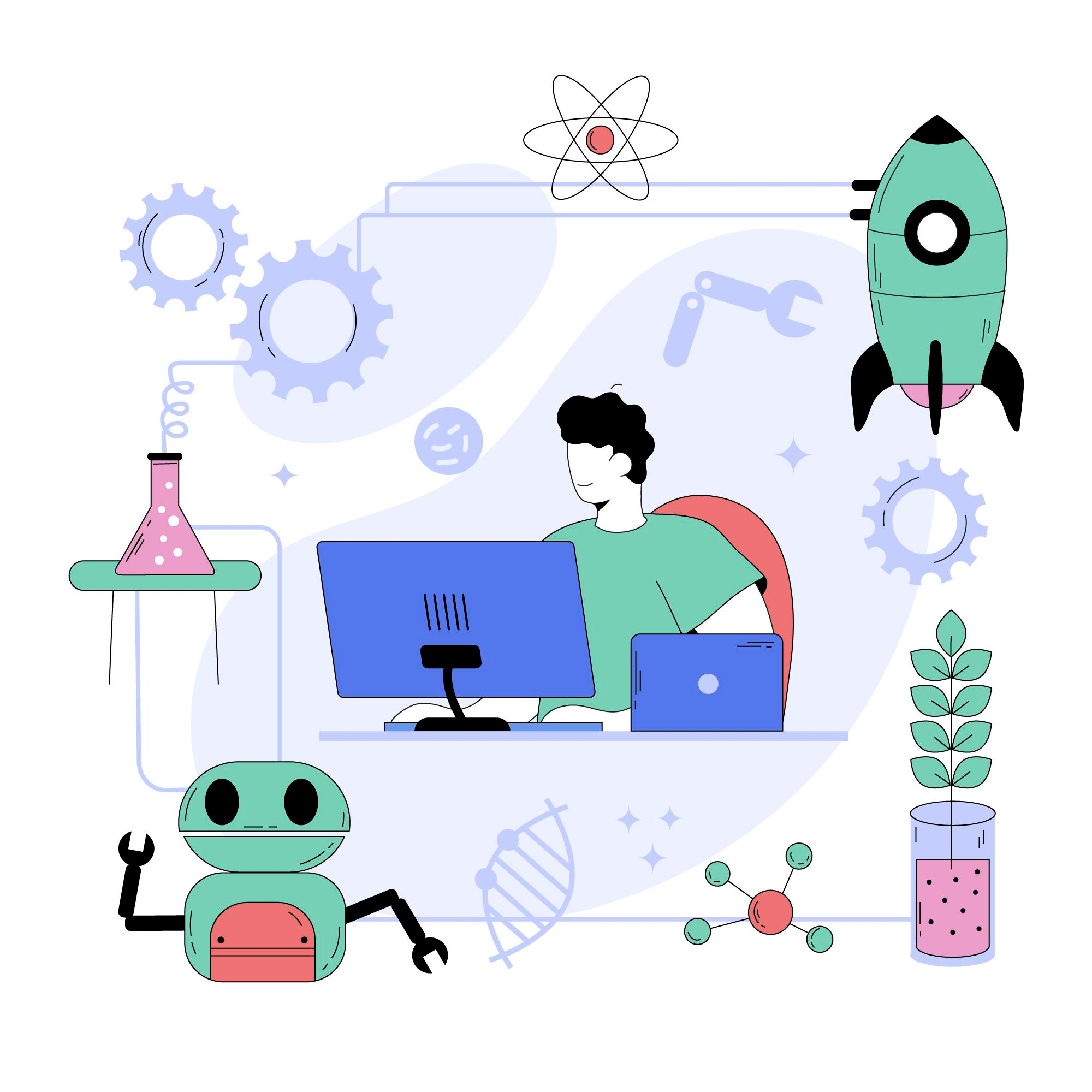
Platform Engineers
At the heart of seamless development and deployment lies the expertise of Platform Engineers. These individuals focus on constructing and maintaining the fundamental infrastructure necessary for development and deployment processes. Their responsibilities encompass designing and implementing robust, scalable platforms tailored to the distinct needs of the DevOps team and project. Their domain spans from orchestrating containers to automating infrastructure, ensuring that developers can concentrate on coding without being burdened by underlying infrastructure complexities.
Chaos Engineers
Picture controlled chaos being injected into a system to preemptively expose vulnerabilities and weaknesses before a real-world outage occurs. Chaos Engineers take on this unique responsibility. Their role involves deliberately causing controlled failures within a system and closely monitoring its response. This proactive approach helps identify potential issues before they escalate into critical problems. By doing so, Chaos Engineers play a vital role in fortifying systems, minimizing downtime, and ensuring a more reliable and resilient user experience.
These supplemental roles serve as specialized forces within the DevOps team, each addressing specific challenges and contributing to the optimization of the entire development and deployment process. Understanding the contributions of these roles enables the formation of a well-rounded team equipped to handle the diverse demands of modern software development. Within this diverse spectrum of roles, Platform Engineers and Chaos Engineers stand out as specialized professionals, enriching the capabilities and resilience of DevOps practices.
The Core of DevOps: Defining Essential Principles
Exploring the foundational principles that drive the essence of DevOps is fundamental in shaping a successful DevOps team in 2024. This guide has meticulously unveiled the pivotal DevOps roles, indispensable skill sets, and strategic methodologies imperative for cultivating a proficient DevOps team. As technological landscapes continue to evolve, the bar for DevOps professionals rises, necessitating adaptability, continuous learning, and cross-disciplinary collaboration as fundamental traits. The dynamic realm of DevOps teams has witnessed an expansion in specialized roles, placing a premium on versatile skill sets to thrive in this ever-evolving arena.
In the quest to construct a highly effective DevOps team, collaborating with adept service providers can yield transformative outcomes. A-Dev, a distinguished leader in DevOps services, remains at the forefront, offering tailored solutions that cater to the dynamic needs of modern businesses. Through the application of state-of-the-art methodologies and innovative practices, A-Dev empowers organizations to navigate the intricacies of DevOps seamlessly, orchestrating efficient workflows and ensuring sustained success in an ever-changing technological landscape.
Steering forward armed with a profound understanding of the core principles of DevOps, leverage these insights in tandem with industry frontrunners like A-Dev to fortify your DevOps team. By integrating these strategies, pave the way for unparalleled success in the swiftly evolving domain of software development.

